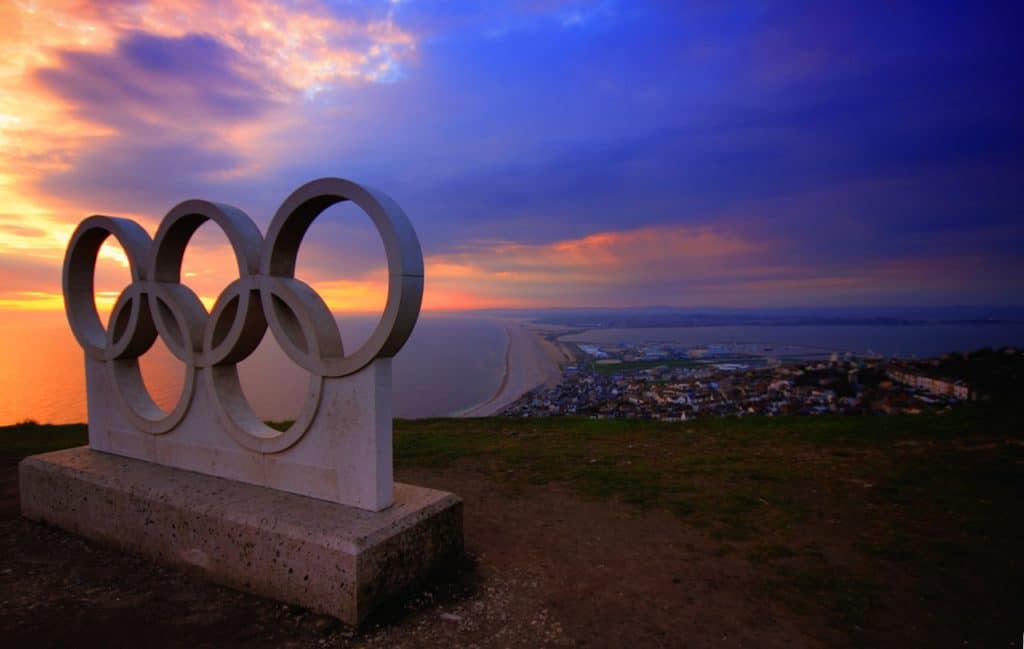
It’s finally happened. The 2020 Olympics have finally arrived in Japan.
I watched the Opening Ceremony live on CBC on Friday.
Maybe it watching the lone athlete who missed the qualifiers running on the treadmill, maybe it was hearing Sonic the Hedgehog and Final Fantasy music played via symphony over the Parade of Nations, maybe it was the fact that it was my dream 5 years ago to travel to Japan for the Olympics, but watching the Opening Ceremony made me extremely emotional.
My fiancé woke up at 8AM to see me blubbering hysterically in front of the television. I’ve since composed myself, but the sheer gravity of the Olympics Games has consumed my thoughts for much of this weekend.

I think it was the realization that the Summer Games only happen every 4 years. The average life expectancy of a human is 72 years.
That means most humans will only live through 18 Summer Olympics. That’s it. Eighteen.

Life seems so much shorter when you measure it in units of world-record 100-m dashes, perfect 10 gymnast floor exercises, and heartwarming underdog stories on the podium.
It also made me consider how many PERSONAL Olympic achievements each of us have within us.
For a lot of athletes, they only have one shot at making it to the Olympic Games. I think of the fiery-haired talent Sha’Carri Richardson who squandered her opportunity to attend by testing positive for THC.
I hope she will be able to redeem herself for the next Olympics in 3 years’ time, but sprinting is a physically demanding sport. (Fun fact: I used to run the 100M dash in school. It can be BRUTAL on the knees).
Even Usain Bolt, dubbed the fastest man in world, only competed in the 2008, 2012, and 2016 Summer Olympics before retiring in 2017. Who’s to say Richardson will still be at her peak for the 2024 Olympic Games?
Not only can some of our dreams be time-sensitive, they may also demand a lot of training and mental conditioning.
I’m writing a novel; while this is in no means a physical sport, it’s still a taxing endeavour. Almost like a mental marathon.
I have to slog away through seemingly insurmountable word counts, revise endless iterations of my story, and perfect a concise synopsis that I can query to a literary agent who will eventually accept my manuscript and shop it around to see who will want to take a chance on it for a 2-year publishing cycle.
Like with training, I need to be intentional with how I get to my end goal. I have to make sacrifices; I have to say no to other activities to get the necessary work done on my manuscript.
And here’s the kicker: after all the preparation, after all the blood, sweat, tears, and time invested, there’s no guarantee that I will be successful.
Just like the young elite athletes who train all their life to get a shot at a gold medal, there’s a good chance they might never even make it to the podium.
So why do they do it? Athletes and creatives alike, why do they subject themselves to such a grueling, disciplined regimen if victory is not preordained?
Because we all want a chance at glory. Whether it’s a best-selling book on the shelf, or a medal around your neck, that feeling of accomplishment is like no other.
It’s not only the external validation, it’s the physical embodiment of life purpose realized; it is both self-esteem and self-actualization, the topmost portions of Maslow’s Hierarchy of Needs.

So perhaps that’s why I was so emotional during the Opening Ceremony. The athletes that are competing in the Tokyo Olympic Games have sacrificed and endured SO much to get to this moment.
Not just the rigours of training for the sport, not just the financial (and potentially political) burden and hardship; they also had to go through the psychological and emotional tax of having the full Olympic experience stripped away, and nearly had the opportunity wrested from them entirely.
They inspire me to keep on my grind and to continue working toward what means the most in my life.
For that reason, in my eyes, every athlete at the 2020 Tokyo Summer Olympic Games is already a winner.
